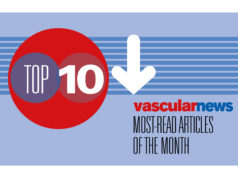 Medical device company PQ Bypass has entered into an agreement that provides for up to an aggregate of US$60 million in equity financing, led by Deerfield Management. Joining the round are existing investors, including Seroba Life Sciences and MedTech Venture Partners. The financing round also allowed the company to convert approximately US$15 million in outstanding convertible debt and interest to equity. Funds will be used to advance the clinical development of the company’s technology for the treatment of peripheral arterial disease (PAD).
Medical device company PQ Bypass has entered into an agreement that provides for up to an aggregate of US$60 million in equity financing, led by Deerfield Management. Joining the round are existing investors, including Seroba Life Sciences and MedTech Venture Partners. The financing round also allowed the company to convert approximately US$15 million in outstanding convertible debt and interest to equity. Funds will be used to advance the clinical development of the company’s technology for the treatment of peripheral arterial disease (PAD).
In PAD patients, extremely long occlusions—defined as greater than 20cm—can be challenging to treat. Historically, physicians have performed open bypass surgery, which has the benefit of durability; however, it is associated with an increased risk of complications, lengthy hospital stays and prolonged rehabilitation, the company states in a press release. The press release adds that minimally invasive approaches, including angioplasty and stenting, work very well on shorter blockages; however, they have not been as effective on longer ones, often resulting in repeat procedures within one year.
Percutaneous femoropopliteal bypass (the DETOUR procedure) is designed to provide the durability of open bypass with the benefits of a minimally-invasive approach. In this procedure, PQ Bypass’ proprietary stent graft technology is placed from the superficial femoral artery, into the femoral vein, and back into the popliteal artery to create a detour around the blockage. The stent graft bypass re-directs oxygen-rich blood, with the goal of restoring blood flow to the lower leg and foot of the patient.
“PQ Bypass has developed a novel technology and procedure to address a true clinical conundrum in the treatment of long lesions from PAD. This technology has the potential to be the standard of care for the segment of PAD patients who, today, have to choose between either an open surgical treatment that lasts longer or less-invasive treatment options that potentially fail approximately 50% of the time. In addition to improving outcomes for patients, this has the potential to significantly reduce the cost burden of long lesion PAD,” said Andrew ElBardissi, principal at Deerfield Management.













